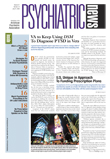The death of a mother or father would seem to present a great risk of psychopathology for a child, yet a recent study indicates that being depressed is worse than being bereaved.
“Bereavement negatively affect[s] children but to a lesser degree than does clinical depression,” wrote Julia Cerel, Ph.D., of the College of Social Work at the University of Kentucky, and four colleagues. Family socioeconomic status and the surviving parent's level of depression also influenced the child's risk of psychopathology.
Little is known from rigorous studies about how children fare after the death of a parent, wrote Cerel and her colleagues in the June Journal of the American Academy of Child and Adolescent Psychiatry. Many earlier studies have looked retrospectively at the histories of bereaved children and adults who later sought psychiatric treatment, while others had methodological problems such as small sample sizes, narrowly selected populations, or interviews conducted with parents or teachers rather than the affected child.
“We still have far to go to understand childhood bereavement,” agreed Cynthia Pfeffer, M.D., a professor of psychiatry and head of the Childhood Bereavement Program at Weill Medical College of Cornell University in New York City. “There are meager amounts of empirical research in the field, and this paper is a good start in answering many questions about bereaved children.”
Cerel and colleagues recruited 360 bereaved children by scanning obituaries and contacting funeral homes within a 50-mile radius of Columbus, Ohio. These children were between the ages of 6 and 17, had never experienced the death of a sibling, and had lost one parent. Of these, 191 “simple bereaved” children had no significant stressor other than parental death, while the rest faced additional stresses such as another death or serious illness in the extended family, parental unemployment, parental death by homicide or suicide, or a mental health contact in the immediate family in the previous two years. These “complex bereaved” children had an average of 1.7 additional stressors per child.
The researchers also recruited two comparison groups: 128 community controls—children of similar ages but who had not experienced the death of an immediate family member—and 110 children diagnosed with depression. The bereaved children were interviewed about two months after the parent's death and again at six, 13, and 25 months after the death. The two control groups were interviewed initially and at six, 13, and 25 months later. Data were gathered from 1989 to 1996 and assessed using DSM-III-R criteria. Significantly more bereaved families (34 percent) and those of depressed children (37 percent) dropped out of the study by 25 months compared with those of community controls (8 percent). Lower socioeconomic status correlated closely with withdrawing from the study. The researchers will address retention in another paper.
The primary outcome measure was a scale summing symptoms of behavioral, anxiety, mood, and other disorders (BAMO), developed by cerel and co-author Mary Fristad, Ph.D., of Ohio State University.
Bereaved children exhibited greater psychopathology than did community controls but less than depressed children. On the combined BAMO scale, the average difference between the depressed and control group was twice that between the bereaved and control group.
There was one difference between the simple and complex bereaved children. BAMO scores were similar at the initial interview, but the simple bereaved group's scores declined by the six-month interview, while the complex bereaved group's score declined the most between six and 13 months.
Two other covariates were associated with worse functioning by the children: lower socioeconomic status and parental depression. Loss of the deceased parent's income is important in itself, but also affects the surviving family's ability to cope during a stressful time.
“The surviving parent is also bereft,” said Pfeffer. “The child has lost one parent and has one distraught parent with his or her own psychological problems and can't parent well.”
The study results may indicate that bereaved children are not as depressed as is commonly believed or that they have symptoms of disorders other than depression, said Pfeffer. Her own studies of children who lost a parent in the September 11 attacks have revealed a greater incidence of anxiety disorders than that found in controls, for instance.
The researchers found no difference between a death long anticipated by the family and a sudden death. “Although a sudden death is shocking, living with a dying parent for weeks, months, or years is also difficult for a child and puts stress on the entire family,” they said.
Anticipation of a parent's death requires further prospective study, said Pfeffer. Children may develop symptoms during the course of the parent's illness, and some may find that death brings a sense of relief. “It would help to know how children feel before and after a parent's death,” she said, to learn which symptoms appear at which time.
Thus, when a child's parent dies, clinicians should be aware of risk factors like depressive symptoms in the surviving parent, other stressful family events, and lower socioeconomic status, wrote Cerel and her team. Such children, they concluded, “will warrant more careful monitoring, and support for their grieving parents will be an important part of their own recovery.”
Future research will go beyond symptoms of psychopathology and look at grief emotions in these children, risk behaviors, and behavior in school, said Cerel.
An abstract of “Childhood Bereavement: Psychopathology in the 2 YearsPostparental Death” is posted at<www.ncbi.nlm.nih.gov/entrez/query.fcgi?cmd=Retrieve&db=pubmed&dopt=Abstract&list--uids=16721318&itool=iconabstr&query--hl=5&itool=pubmed—docsum>.▪
